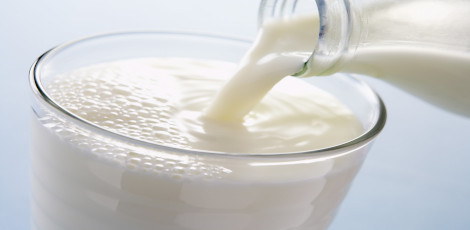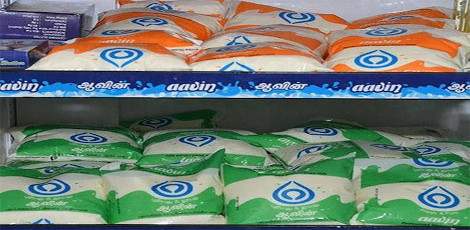Will cholesterol increase by drinking milk?
Posted on: 25/May/2021 1:31:02 PM

There prevails a wrong notion that the cholesterol level will increase if the senior/elder citizens drink milk daily!
Scientists have now announced after conducting a survey/analysis with 20 Lakhs persons that it is CLEARLY ESTABLISHED THAT CHOLESTEROL DOES NOT INCREASE BY DRINKING MILK!
A RESEARCH ARTICLE ON THIS TOPIC HAS BEEN PUBLISHED IN THE Medical Research Journal International Journal of OBCD.
It is clearly established in this article that the cholesterol content is lower for the citizens who drink milk daily even as compared to those who do not drink milk daily even if it is SDL (harmful fat) or HDL (beneficial fat)!
Further, they have established that the prospects of those who drink milk regularly being affected with blocks in the heart veins ARE LESSER BY 14%!
In this regard, the Professor of the Department of University of Reading Neutrogenetics, Vimal Karani, shared:
It has been established clearly that cholesterol level DOES NOT INCREASE while drinking milk regularly. We have established that there are genetic changes in those drinking milk in large quantities daily and also that though they have a larger quantum of BMI body fat, the level of harmful/beneficial fats are lower! Due to this reason, the citizens who drink milk regularly have lower prospects of getting affected by heart-related diseases! So, WE HAVE FOUND THAT IT IS NOT A WISE STEP TO AVOID DRINKING MILK DAILY TO REDUCE PROSPECTS OF HEART-RELATED DISEASES!
As above, the research has thoroughly established that there will be no increase in cholesterol level even though BMI body fat might increase! Scientists have established it is indeed advisable to drink milk daily to reduce the cholesterol level!
A cup of milk (around 240 ml of cow milk) contains 3.25% fat. It has 149 calories, 88% water, 7.7 grams of protein, 11.7 grams of carbohydrate, and 12.3 grams of sugar. Further, milk has rich Calcium content. It may be noted that it is in a form easily absorbed in our body! Apart from this, milk contains various nutrients including Vitamin B12 and Riboflavin.







